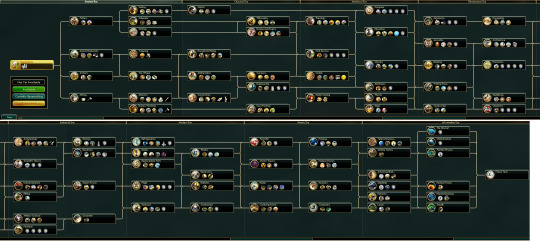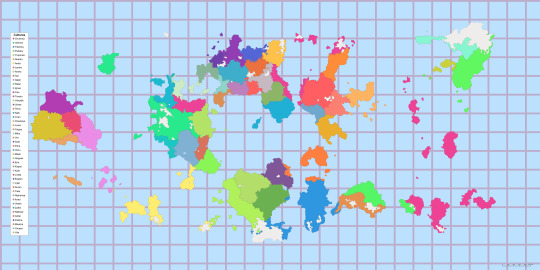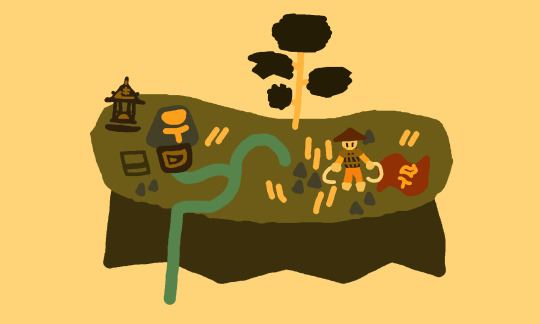#Baha'i history
Explore tagged Tumblr posts
Text
The Baháʼí Faith is a world religion that was founded in the 19th century Middle East. Its founders and the majority of its early followers were of Iranian heritage, and it is widely regarded as the second-largest religion in Iran after Islam. Though most Baháʼís in Iran are of a Muslim background, the 19th century conversions of sizeable numbers of individuals from Judaism and Zoroastrianism in the country are also well documented.
The early history of the Baháʼí Faith in Iran covers the lives of these founders, their families, and their earliest prominent followers known by honorific designations such as the Letters of the Living and the Apostles of Baháʼu'lláh.
Since its inception the Baháʼí Faith has promoted democratically elected councils; the promotion of modern education as a priority within families (with emphasis on female education) and specific encouragement of women's equality with men. Iranian Baháʼís have created schools, agricultural cooperatives, and medical clinics across the country for themselves and others. Iran is also where the greatest persecution of Baháʼís has taken place—including the denial of education, arbitrary arrest, and killing. Iran's long history of state-sponsored persecution against Bábís and Baháʼís is well documented. The website "Archives of Baháʼí Persecution in Iran" has compiled thousands of documents, reports, testimonials, photos, and videos revealing proof of efforts to suppress and eliminate Baháʼís, particularly since the Iranian revolution of 1979.

Gathering of youngsters on 13 August 1933 at Tehran's Tarbiyat Baháʼí school for girls. At least 47 such Baháʼí-operated schools were forcibly closed under the Pahlavi government in 1934.

Ten Bahá'í women imprisoned, tortured, and hanged for teaching children in Shiraz, Iran in 1983.
#Baha'i Faith#Iranian Baha'is#Baha'i Faith in Iran#Persecution of Baha'is in Iran#Iranian women#Iranian history#Baha'i history#religious persecution
12 notes
·
View notes
Text
In the war between Israel and Hamas, there have been far too many casualties—thousands of innocent civilians have died, primarily in Gaza. But this war has another less visible casualty: the hundreds of thousands of Jewish immigrants to Israel from the Middle East and North Africa known as Mizrahi, whose history is being erased from the popular narrative about Israel. My community is among them.
When angry protesters hurl charges of apartheid and colonialism at Israel, they are, knowingly or not, repudiating the truth about Israel's origin and the vast racial and ethnic diversity of its nation.
I was born and raised in Iran in a family of Jewish educators. I came of age during the tumultuous years of the Iranian revolution, just as Ayatollah Khomeini rose to power in 1979, and soon thereafter, annihilated his opposition—feminists, leftists, even the Islamic Marxists who had long revered him as their spiritual leader. Until 1979, if anyone had told my observant Jewish family that we would someday leave Iran, we would have laughed. In fact, at our Passover seders, the words "next year in Jerusalem," were always followed by chuckles and quips, "oh, yeah, sure, Watch me pack!" all underlining our collective belief that we were exactly where we intended to remain. We loved Israel, but Israel was a Nirvana—a place we revered but never expected to reach.
The 30 years preceding the Islamic revolution had led the Jewish community to believe that the dark days of bigotry were behind them. And for good reason! When my father was a schoolboy in the late 1930s, he was not allowed to attend school on rainy days. In the highly conservative town where he grew up, in Khonsar, his Shiite neighbors considered Jews "unclean," or Najes. They barred them, among other things, from leaving their homes on rainy days, lest the rainwater splashed off the bodies of the Jews and onto the Muslim passersby, thus making them "unclean," too. Yet, that same boy grew up, left the insular town, attended college in Tehran, earned a master's degree, and served in the royal army as a second lieutenant. (To his last day, my father's photo in military uniform was among his most prized possessions.) After service, he became the principal of a school, purchased a home in what was then a relatively upscale neighborhood of Tehran. The distance between my father's childhood and adulthood far surpassed two decades. It was the distance between two eras—between incivility and civility, bigotry and tolerance.
Yet, as if on cue, the demon of antisemitism was unleashed again. The 1979 Islamic revolution summoned all the prejudices my father thought had been irretrievably buried. One day, on the wall across our home, graffiti appeared, "Jews gets lost!" Soon thereafter, the residence and fabric store my aunt and her extended family owned in my father's childhood town were set on fire after a mob of protesters looted it. Within days, she and her family, whose entire life's savings had burned in that fire, left for Israel. As young as I was, I could see that the regime was indiscriminately brutal to all those it deemed a threat to its reign, especially secular Muslims. But the new laws were specifically designed so that non-Muslims, and women, all but became second-class citizens. Members of religious minorities, especially the Baha'i, could no longer eye top jobs in academia, government, the military, etc. Restaurateurs had to display signs in their windows making clear that "the establishment was operated by a non-Muslim." In a court of law, members of religious minorities could offer testimony in criminal trials, but theirs would only count as half that of a Muslim witness. Jews were once again reduced to Dhimmis—tax-paying citizens who were allowed to live, but not thrive. Then came a handful of executions of prominent Jewish leaders in the early months after the revolution, which sent shockwaves through the community. Jewish schools were allowed to operate, but under the headmastership of Muslims who were officially appointed.
Within a few years after the rise of Ayatollah Khomeini to power, the Jewish population of Iran, which once stood at 100,000, shrank to a fraction of its size. Today, of the ancient community whose presence in Iran predates that of Muslims, only 8,000 remain. For centuries, Iran has been home to the most sacred Jewish sites in the Middle East outside of Israel. But those monuments have either fallen into disrepair or are targets of regular attacks by antisemitic mobs. Only last week, the tomb of Esther and Mordecai—the memorial to the heroine and hero from the Book of Esther who saved the Jews from being massacred in ancient Persia, was set on fire.
How is it that the 90,000-plus who left Iran, many for Israel, are now deemed as occupiers? How do Iranian refugees fleeing persecution become "colonizers" upon arrival in Israel? These families, my aunt among them, were not emissaries of any standing empire, nor were they returning to a place where they had no history. For them, Israel was not a home away from their real homeland. It was their only homeland. The vitriolic slogan that appeared across my home in 1979 demanded that we "get lost!" In 2024, once again, the same Jews are being called upon to leave, this time Israel. Where, then, are Jews allowed to live?
Iranian Jews were not alone. Jews from Iraq, especially in the aftermath of the 1941 pogrom called Farhood, similarly fled their homeland. So did the Jews of Yemen, Tunisia, Egypt, Turkey, Syria, Morocco, Algeria, Ethiopia, Afghanistan, etc. All, destitute and dejected, they took refuge in Israel. Today, they make up nearly 50 percent of Israel's population. To call such a nation colonial GRAVELY misrepresents the facts about Jews and Israel.
In his timeless essay, Looking Back on the Spanish Civil War, George Orwell said that in the Spain of 1937, he "saw history being written not in terms of what happened but of what ought to have happened according to various 'party lines.'" With the alarming rise of antisemitism around the world, and in light of the bloody attacks on Israel by Hamas on Oct. 7, the greatest massacre of Jews since World War II, 2024 bears an uncanny resemblance to Orwell's 1937. But perhaps in no way more ominously than the way truth has been upended to serve an ideological narrative—one in which Jews, who have lived uninterruptedly in that land for more than two millennia, are cast as white non-indigenous interlopers, with no roots in what has always been their ancient homeland.
A public scholar at the Moynihan Center (CCNY), Roya Hakakian is the author of several books including, Journey from the Land of No: A Girlhood Caught in Revolutionary Iran (Crown, 2005).
#jumblr#antisemitism#leftist antisemitism#mizrahi history#erasure of jewish history#erasure of mizrahi history
222 notes
·
View notes
Note
Hi! I know how much you love breaking down toxic cults and wayward belief systems - I wanted to know if you had anything on the Baha'i faith. I'm kinda skeptical of anything seeded after the 17th century and esp. on the surface level.... I def have questions lmao. Thanks!
I don't know anything about them specifically, but I can say that you should be somewhat skeptical of any religious movement from any point in time, not just past the 17th century. (There was never a point in history when everything was free from shenanigans and bullshit.)
18 notes
·
View notes
Text
tw religion mention
My religion (the Baha'i Faith) explicitly tells people to not get involved with politics.
But with this era in history, I hope keeping my rights, my friends, my family, my LIFE is enough justification to break that rule.
15 notes
·
View notes
Text
Until recently, Israelis could not travel to a single neighboring country, though Beirut, Damascus, Amman, and Cairo are all less than a day's drive from Israel. Peace treaties with Egypt and Jordan have not changed this much, though many curious Israelis have now visited these countries. In any event, this slight opening has not dampened the urge to break out of straitjacket that has been a part of Israel's modern history from the beginning - from before the beginning.
Long before there was a State of Israel, there was already isolation. An early economic boycott can be traced back to 1891, when local Arabs asked Palestine's Ottoman rulers to block Jewish immigration and land sales. In 1922, the Fifth Palestine Arab Congress called for the boycott of all Jewish businesses.
A longer official boycott by the twenty-two-nation Arab League, which banned the purchase of "products of Jewish industry in Palestine," was launched in 1943, five years before Israel's founding. This ban extended to foreign companies from any country that bought from or sold to Israel (the "secondary" boycott) and even to companies that traded with these blacklisted companies (the "tertiary" boycott). Almost all the major Japanese and Korean car manufacturers - including Honda, Toyota, Mazda, and Mitsubishi - complied with the secondary boycott, and their products could not be found on Israeli roads. A notable exception was Subaru, which for a long time had the Israeli market nearly to itself but was barred from selling in the Arab world.
Every government of the Arab League established an official Office of the Boycott, which enforced the primary boycott, monitored the behavior of secondary and tertiary targets, and identified new prospects According to Christopher Joyner of George Washington University, "Of all the contemporary boycotts, the League of Arab States' boycott against Israel is, ideologically, the most virulent; organizationally, the most sophisticated; political, the most protracted; and legally, the most polemical.."
The boycott has at times taken on unusual targets. In 1974, the Arab League blacklisted the entire Baha'i faith because the Baha'i temple in Haifa is a successful tourist attraction that has created revenue for Israel. Lebanon forbade the showing of the Walt Disney production Sleeping Beauty because the horse in the film bears the Hebrew name Samson.
- Start-Up Nation by Dan Senor and Saul Singer, pages 59-61
12 notes
·
View notes
Text
Ancient Alien Theory is like some weird almost cult for atheists who can't let go of the culture of religion.
I watch the show for funsies. Usually when I'm high. It's entertaining in a "could it be? Ancient Astronaut Theorists say..... ~~a ReSoUnDiNg YeS~~!" 🥴 sort of way. I think it's fun to see stuff about ancient history, even if they do make it about aliens. It's like a sort of alternate timeline fantasy along with neat history for me. It's fun to see the commonalities in ancient cultures because, to me, it speaks to our connections and similarities as humans, the stories we tell covering such shared themes. Just watched one that talked about about mandalas and the images created by sound waves, which was just cool from a science-culture overlap perspective. And then the other stuff about modern UFO sightings and things just being weird news, conspiracy theory shenanigans.
But I was watching it the other day, and I thought, "This is Baha'i for atheists." Not that I'm all that familiar or saying it correlates with actual Baha'i philosophy, just in the way that Ancient Alien Theory is rooted in concepts and stories from religions and cultures all over the world, especially the Abrahamics, Hinduism, Zoroastrianism, and Buddhism.
Whether or not you're thinking of God or aliens, the idea that someone/thing out there purposely manipulated our planet and our evolution to create the human race, that human civilization has been influenced by some extraterrestrial force bringing knowledge and technology, that someday these beings will (or already have) return for some greater purpose or next step, yada yada yada... all just sounds like Christians and similar who maybe have given up the spiritual belief but still want those concepts to exist. At times, it really just comes across as a scientific explanation for religious creation stories. Like, how is "God put water on the Earth" so different from "Water came from asteroids. But could it be possible that an extraterrestrial civilization sent water-bearing asteroids... on purpose? Ancient Astronaut Theorists say yes"? Just taking science and history and making it fit the theory, exactly like a religion would. Even one of their main people, Eric Von Danikan, is super Christian and defends his faith in God despite writing the book on how angels are aliens and Jesus was half alien. It's religion with a sciencey mask on.
I think that if people 5,000 years ago were cutting stone with greater precision than we were doing 100 years ago, that's pretty neat. Saying they were able to do it because of aliens is not only a discredit to those people, but it reveals the religious mentality or external locus of control in the otherwise atheist-identifying proponents of the theory.
8 notes
·
View notes
Text
The Baha'i faith teaches unity of all the world's religions

Founded in 19th Century Iran, the Baha'i faith built off of the previous three Abrahamic religions. The Baha'i believe that all of the world's major religions have been revealed by the same God.
From Wikipedia's article on the Baha'i faith:
According to Baháʼí teachings, religion is revealed in an orderly and progressive way by a single God through Manifestations of God, who are the founders of major world religions throughout human history; Buddha, Jesus, and Muhammad are cited as the most recent of these Manifestations of God before the Báb and Baháʼu'lláh.
Despite their religion's inclusive and progressive nature, the Baha'i people have faced ongoing persecution, particularly in their home nation under the Islamic Republic of Iran. But despite attempts to suppress it, the Baha'i faith is one of the fastest growing religions in the world, as well as one of the most widespread around the globe.
The Baha'i people have an elected leadership for their entire religion, comparable to the Vatican for Catholicism. It's called the Universal House of Justice, and is located in Haifa, Israel; also in Haifa are the Shrine of the Báb, and its famous gardens, also known as the Hanging Gardens of Haifa.


The main symbol of the Baha'i faith is the nine-point star. Others include the five-point star, the Greatest Name, and the Ringstone Symbol. (Link)






#baha'i#baha'u'llah#Shrine of the Báb#hanging gardens of haifa#symbols#the greatest name#nine point star#the ringstone symbol#religon#temple#minority religions#iran#israel#haifa#gardens#islamic republic of iran#sharia law#world religions#islam#muslim#christianity#christian#jewish#judaism#buddhism#buddha#jesus#muhammad#jewblr#jumblr
5 notes
·
View notes
Text
Scholar Drops Truth Bomb on Ignorant, Protesting Students
Dr. Denis MacEoin was a British academic, scholar and writer with a focus on Persian, Arabic, and Islamic studies. He was an expert in Middle Eastern affairs and was a senior editor of the Middle East Quarterly.
The following is an open letter of rebuttal that he wrote to The Edinburgh Student's Association who voted to boycott Israel based on a claim that Israel is under an apartheid regime.

TO: The Committee Edinburgh University Student Association.
May I be permitted to say a few words to members of the EUSA? I am an Edinburgh graduate (MA 1975) who studied Persian, Arabic and Islamic History in Buccleuch Place under William Montgomery Watt and Laurence Elwell Sutton, two of Britain 's great Middle East experts in their day. I later went on to do a PhD at Cambridge and to teach Arabic and Islamic Studies at Newcastle University. Naturally, I am the author of several books and hundreds of articles in this field. I say all that to show that I am well informed in Middle Eastern affairs and that, for that reason, I am shocked and disheartened by the EUSA motion and vote.
I am shocked for a simple reason: there is not and has never been a system of apartheid in Israel.
That is not my opinion, that is fact that can be tested against reality by any Edinburgh student, should he or she choose to visit Israel to see for themselves. Let me spell this out, since I have the impression that those members of EUSA who voted for this motion are absolutely clueless in matters concerning Israel, and that they are, in all likelihood, the victims of extremely biased propaganda coming from the anti-Israel lobby.
Being anti-Israel is not in itself objectionable. But I'm not talking about ordinary criticism of Israel. I'm speaking of a hatred that permits itself no boundaries in the lies and myths it pours out. Thus, Israel is repeatedly referred to as a "Nazi" state. In what sense is this true, even as a metaphor? Where are the Israeli concentration camps? The einzatsgruppen? The SS? The Nuremberg Laws? The Final Solution? None of these things nor anything remotely resembling them exists in Israel, precisely because the Jews, more than anyone on earth, understand what Nazism stood for.
It is claimed that there has been an Israeli Holocaust in Gaza (or elsewhere). Where? When? No honest historian would treat that claim with anything but the contempt it deserves. But calling Jews Nazis and saying they have committed a Holocaust is as basic a way to subvert historical fact as anything I can think of.
Likewise apartheid. For apartheid to exist, there would have to be a situation that closely resembled how things were in South Africa under the apartheid regime. Unfortunately for those who believe this, a weekend in any part of Israel would be enough to show how ridiculous the claim is.
That a body of university students actually fell for this and voted on it is a sad comment on the state of modern education. The most obvious focus for apartheid would be the country's 20% Arab population. Under Israeli law, Arab Israelis have exactly the same rights as Jews or anyone else; Muslims have the same rights as Jews or Christians; Baha'is, severely persecuted in Iran, flourish in Israel, where they have their world center; Ahmadi Muslims, severely persecuted in Pakistan and elsewhere, are kept safe by Israel; the holy places of all religions are protected under a specific Israeli law. Arabs form 20% of the university population (an exact echo of their percentage in the general population).
In Iran, the Bahai's (the largest religious minority) are forbidden to study in any university or to run their own universities: why aren't your members boycotting Iran ? Arabs in Israel can go anywhere they want, unlike blacks in apartheid South Africa . They use public transport, they eat in restaurants, they go to swimming pools, they use libraries, they go to cinemas alongside Jews - something no blacks were able to do in South Africa.
Israeli hospitals not only treat Jews and Arabs, they also treat Palestinians from Gaza or the West Bank. On the same wards, in the same operating theatres.
In Israel , women have the same rights as men: there is no gender apartheid.
Gay men and women face no restrictions, and Palestinian gays often escape into Israel, knowing they may be killed at home.
It seems bizarre to me that LGBT groups call for a boycott of Israel and say nothing about countries like Iran , where gay men are hanged or stoned to death. That illustrates a mindset that beggars belief.
Intelligent students thinking it's better to be silent about regimes that kill gay people, but good to condemn the only country in the Middle East that rescues and protects gay people. Is that supposed to be a sick joke?
University is supposed to be about learning to use your brain, to think rationally, to examine evidence, to reach conclusions based on solid evidence, to compare sources, to weigh up one view against one or more others. If the best Edinburgh can now produce are students who have no idea how to do any of these things, then the future is bleak.
I do not object to well-documented criticism of Israel. I do object when supposedly intelligent people single the Jewish state out above states that are horrific in their treatment of their populations. We are going through the biggest upheaval in the Middle East since the 7th and 8th centuries, and it's clear that Arabs and Iranians are rebelling against terrifying regimes that fight back by killing their own citizens.
Israeli citizens, Jews and Arabs alike, do not rebel (though they are free to protest). Yet Edinburgh students mount no demonstrations and call for no boycotts against Libya, Bahrain, Saudi Arabia, Yemen, and Iran. They prefer to make false accusations against one of the world's freest countries, the only country in the Middle East that has taken in Darfur refugees, the only country in the Middle East that gives refuge to gay men and women, the only country in the Middle East that protects the Bahai's.... Need I go on?
The imbalance is perceptible, and it sheds no credit on anyone who voted for this boycott. I ask you to show some common sense. Get information from the Israeli embassy. Ask for some speakers. Listen to more than one side.
Do not make your minds up until you have given a fair hearing to both parties. You have a duty to your students, and that is to protect them from one-sided argument.
They are not at university to be propagandized. And they are certainly not there to be tricked into anti-Semitism by punishing one country among all the countries of the world, which happens to be the only Jewish state. If there had been a single Jewish state in the 1930's (which, sadly, there was not), don't you think Adolf Hitler would have decided to boycott it?
Your generation has a duty to ensure that the perennial racism of anti-Semitism never sets down roots among you. Today, however, there are clear signs that it has done so and is putting down more. You have a chance to avert a very great evil, simply by using reason and a sense of fair play. Please tell me that this makes sense. I have given you some of the evidence.
It's up to you to find out more.
Yours sincerely,
Denis MacEoin
5 notes
·
View notes
Note
idk about baldoni being jewish, but he is a member of the baha'i faith which has a history of homophobia (rain wilson is another famous person who aligns with the baha'i faith)
he’s ethnically jewish. i haven’t seen anything homophobic from him personally, and in fact what he talks about on his podcast sounds pretty progressive, so we should confirm that before getting ahead of ourselves. last i heard, rainn wilson was talking about an ‘anti christian slant in Hollywood’ and sounded personally affected by it so idk how into that faith he is.
#Asks#anonymoose#fact checking is our friend#idk how you missed him being jewish#it comes up first thing on google
2 notes
·
View notes
Text
Every time I see something about how it's so horrible that people are just going about their lives when a genocide is happening in this day and age I just roll my eyes and scroll cause like
China is on stage 9 of genocide against Uyghur Muslims
Azerbaijan is on stages 8,9, and 10 of genocide against Armenians
Iran is on stage 8 of genocide against Sunni, Baha'i, LGBT+, Kurdish, and more
Rwanda is on stages 3,6 and 10 of genocide against the Tutsi people
the genocide in Yemen against Yemenis led by Saudi Arabia and backed by Iran and the UAE is on stages 9 and 10
Turkey is on stages 5,6, and 9 in a genocide against the Kurdish
Syria is on stage 9 in a genocide against the Kurdish
Egypt is on stage 8 of genocide against Coptic Christains
Canada is on stage 10 of genocide against Indigenous People
Israel is on stages 5,6, and 8 of genocide against Palestinians
It's great that y'all want to speak up about genocide happening, but stop acting like you haven't been ignoring so many well-documented genocides happening right now or in recent history cause this isn't even half of it.
also, all of this information is from Genocide Watch which seems to have last done all their updated reports in 2021 so some of this may have changed since then
11 notes
·
View notes
Text
Archives of Bahá’í Persecution in Iran

This Archive, which records the persecution of Bahá’ís in Iran, has been established by the Bahá’í International Community in response to rising interest both internationally and within Iran to understand the depth and breadth of this persecution. The documents shed light on the decades-long, systematic, and ongoing persecution of the Baha’is, instigated by the clergy and by the government.
"The website, available in both English and Persian....covers a wide range of incidents including systematic discrimination, arrests and imprisonments, physical violence and executions, economic oppression and deprivation, exclusion from education, acts of property destruction and cemetery desecration, and propaganda and incitement to hatred.
This unique collection now contains more than 10,000 documents, images, and audio and video records of instances of persecution in Iran dating back as far as 1848, although the great majority of cases represented in the archive relate to the most recent wave of persecutions that has occurred since 1979. These records, which include copies of government and judicial documents, clerical fatwas, newspaper articles, and other accounts, are presented not only as images of original documents but, importantly, have also been transcribed and made available in text format in Persian and with English translations. The monumental work undertaken to date means that this site has now developed into a resource of unparalleled significance, not only for historians, researchers, film-makers, journalists, and human rights advocates, but also for individuals who may wish to learn about and remember the sacrifices made by their own friends and family members.
The Universal House of Justice has asked us to formally bring the existence of this website to your attention as a resource to assist the worldwide Bahá’í community in defending the rights of the Bahá’ís in Iran and to support a more effective communication of the scope and severity of the persecution to governments, civil society, and the media.
The upsurge in the persecution of the Bahá’ís in Iran in recent months has given rise to countless expressions of concern and support from leaders of thought, politicians, human rights advocates, and many others. The current social turmoil enveloping Iran has also demonstrated that the oppression which has been suffered by the Bahá’ís for generations is now being visited upon a broad cross section of the Iranian people, with the result that the example of constructive resilience as well as patience which the Bahá’ís have demonstrated throughout the many decades of persecution is becoming increasingly recognized and examined."
—The Universal House of Justice, Department of the Secretariat
The Bahá’í Faith was born in 19th century Persia with the appearance of two prophetic figures—the Báb and Bahá’u’lláh. The Báb’s mission was to prepare the way for the coming of a Promised One foretold in all the world’s religions. Bahá’u’lláh claimed to be that Promised One with a divine mission to usher in a new stage of humanity’s unity as a single entity living in a common homeland. His teachings outlined a framework for the emergence of a global civilization that would advance both the spiritual and material dimensions of life. Among those teachings are the oneness of the entire human race; the independent search after truth; the abolition of all forms of prejudice; the harmony which must exist between religion and science; and the equality of men and women. For more information about the Bahá’í Faith visit the official website.
#Baha'i Faith#Baha'is in Iran#Persecution of Baha'is in Iran#Iranian history#Baha'i history#religious persecution#this is why my family and pretty much everyone I knew growing up in the Iranian diaspora had to flee Iran
4 notes
·
View notes
Text
Watch the trailer for Who was she? Season 3!
youtube
This podcast is where your host, Tara Jabbari shares the stories of women throughout Baha'i history.
This season is about Hazel Scott, a talented musician and activist.
New episodes will start on August 1st wherever you listen to podcasts like Spotify, Apple, Google, Acast, and others.
#whowasshepodcast#whowasshe#podcast#podcaster#podcastlife#podcasthost#history#biography#historypodcast#historypodcasts#biographypodcast#bahai#bahaifaith#Youtube#womeninhistory#HazelScott#BlackWomenInMedia#jazz#jazzmusic#pianist#piano#pianoplayer#classicalpianist#womeninjazz#music#musician#jazzhistory#blackhistory
3 notes
·
View notes
Text
First: Shame on both your heads for posting this on October 7 and tagging it that way.
As October 7 unfolded one year ago, I watched along with the rest of the world, devastated, as the terrorist cult that had brutally ruled my home for 17 years unleashed its savagery on Israel. Hamas claimed the atrocities of October 7 were part of their "resistance" against Israeli occupation and aggression. One year later, I hope it is clear for all to see that Hamas's attack was not an act of resistance but one of a nihilistic terrorism.
Shame on you for acting like Hamas torturing, mutilating, and burning its way across 21 towns was an act of resistance that should be commemorated by sharing Vintage Propaganda.
Since the start of the current war between Israel and Hamas, Hamas has committed countless atrocities against its own people in Gaza. This was true even before the war. Yet somehow, despite the fact that Hamas has effectively kidnapped the Gaza strip and all its inhabitants and routinely terrorizes them, these crimes are never reported by Arabic media or western media, nor by global human rights organizations, all of which tend to portray Hamas as a legitimate resistance group who are trying to "liberate" the Palestinians.
Shame on you and the entire rest of the movement for silencing and ignoring Gazan activists instead of centering and platforming them.
And fuck you for supporting the far-right fascist theocratic dictatorship that has held Gaza under intensely cruel control for 17 years.
I was held under arrest for 21 days [by Hamas] and subjected to various types of torture. I was beaten with batons and sprayed with cold water in the late winter night hours.
...After we were released, most of those who participated in the demonstrations emigrated away from Gaza. There was no hope for any change in the current situation. We suffered ongoing harassment by Hamas members. Some died trying to leave, like Tamer Al-Sultan, a pharmacist whose crime was asking for a reconciliation between Hamas and Fatah.
Second: Edward Said may have been born in Palestine, but his Columbia University ass was a quintessentially American ivory tower academic.
He once called campus security because a Vietnam War protest interrupted the class he'd paid so much to take.
His gift to academia was giving it permission to copy-paste American racial dynamics onto a COMPLETELY different part of the world.
Clueless Westerners look at this shit and go, "Yes! This tallies with my understanding that Jews are privileged white people and Muslims are oppressed!"
We don't learn about 1,300 years of MENA colonization by a series of Islamic empires in school. Much less that the power dynamic there today is one where Iran tries to build its own empire by using terrorist groups as its own armies, brutally oppressing Syrians, Yemeni, Baha'is, Jews, Hindus, Christians, and the "wrong" kinds of Muslims. We just assume everywhere else works the way the United States does.
Everything he says in this clip is completely counterfactual, superficial disinformation.
Let's see how many lies there are in the above clip alone.
"Israel was constructed on the ruins of another society" - you do know that the Jews, Arabs, and Bedouins who became Israeli citizens were part of that society, right? Perhaps this dude is why so many people seem to think Jews invaded Palestine in 1948.
"Another people who remain unacknowledged" - the only ones who are unacknowledged are the ones who remained in Israel. Seriously, who on this earth does not know about Palestinians?
"as just sort of obscure natives in the background" - Anyone who reads history books with actual, genuine citations, as opposed to Ilan Pappé, knows that this is not the case. Not only are they an obvious and integral part of history. But in his context of "oh we'll just kick out the Palestinians?" Did he never hear about every surrounding country invading en masse in 1948? Does he somehow think that the UN's plan had been for Israel to declare independence and war in the same day?
"Back to the desert - let them go to one of the other Arab countries" - bruhhhh. 350,000 middle- and upper-class Arabs left before the war even started, because al-Husseini's volunteer armies were trying to take as much land as they could. I could write paragraphs about all the towns that weren't Kicked Out By The Jews, and the towns that attacked first because militias or Arab armies had taken them, etc.
"The British left us a road system, an electrical system, municipal buildings, etc etc etc, and we could build Israel" - If the leadership of Arab Palestine had accepted the UN's 1947 vote to give it a state, it would have had all of that too! The entire purpose of everything that Britain built, and everything that Jews and Arabs built under Britain, going all the way back to the League of Nations Mandate for Palestine, was that BOTH COMMUNITIES WERE SUPPOSED TO HAVE SELF-DETERMINATION!!
"If we had done X and Y to create Palestine, Israel wouldn't exist" - see above. He is paraphrasing an unnamed source who, if his paraphrase is even accurate, was talking out of their ass.
It is not the Palestinians' fault that they had horrific fascist leadership, led by a literal Nazi war criminal, which would accept none of that so long as it involved Jews being there. But it also isn't Israel's fault.
"Israel bears no responsibility for pushing people out" - Israel has been clear since day 1 that it would be happy to negotiate returning any refugees' property or compensating refugees somehow, as the Arab League has demanded -- just exactly as soon as the Arab League, equally, negotiates the same for the 850,000 Jewish refugees that every Muslim-majority country, from Morocco to Afghanistan, began ethnic cleansing before Israel even declared independence.
Also... If the Oslo Accords say that Israel isn't liable for that, it means Palestine signed the Oslo Accords with that in there. This is Western paternalism: the same Western paternalism that runs through the entire movement. Westerners, including Edward Said, consistently deny Palestine and Palestinians any sort of agency at all.
"Gaza is the most criminal place on earth - because of Israel!" First of all, rude. Way to shit on Gaza. But also: Then why is he saying Gaza, and not Palestine? Why is Gaza the most criminal place on earth, and not the much larger West Bank? Could it perhaps be because the West Bank was occupied by Jordan, the only country that gave Palestinian refugees citizenship and human rights? And Gaza was occupied by Egypt, which kept them under harsh military rule... and the military was full of Muslim Brotherhood members who actively spread resentment and disinformation to encourage terrorism? No? The people of Gaza are inherently violent? And that's not an incredibly demeaning and dehumanizing characterization? Because he's taking away their own agency, and crediting it instead to Israel??
"Jews have been so oppressed but you can't keep oppressing people" - As everyone does, he's erasing the 20%+ of the population of Israel that's Arab, Druze, Bedouin, Circassian, etc.
"Just because you yourself were a victim once." I can see why this resonates with Westerners, who rarely know anything about antisemitism or Jewish history beyond "Holocaust bad." But seriously, once?? The Holocaust itself sits neatly between hundreds of thousands of Jews murdered in Russian/European pogroms on one side, and the ENTIRE Middle East and North Africa massacring and yeeting the Jews on the other.
"There has to be a limit!" Bro. Nobody is arguing that "the Jews" get to oppress people for unlimited years Because Holocaust. That reveals an incredibly disturbing void of knowledge about the actual dynamics and political events between the two countries. It's also a pretty weird and biased concept of Jews in the first place.
Lastly, fucking stop with the shitty slogans. When a movement makes it this obvious that you consider the entire thing to be "Occupied Palestine" - as do both your blogs - you can no longer hide behind, "we're not saying we want Hamas to massacre the Jews it couldn't get to a year ago!"
1998, Edward Said.
"Israel was constructed on the ruins of another society."
via conflictechoes on insta
#depressing discourse#this movement is so blatantly Hamas at this point#you should not have your tongues this far up Iran's imperialist ass without a barrier for safer sex purposes#wall of words#antisemitism#fuck hamas
19K notes
·
View notes
Text
Delhi Day Trip: Complete Guide to the Capital
Delhi is a lively and colorful city in India, combining historic sites, rich culture, and modern attractions. Whether you're visiting for the first time or live nearby, spending a day in Delhi can be enjoyable. The city offers something for everyone, including ancient forts, busy markets, and beautiful parks. For those planning a short visit, booking group airfare can save money and make travel easier, especially with family or friends.
Morning: Discover Delhi's History
Start your day early to see as much as you can. Start at the Red Fort, a UNESCO World Heritage Site that showcases India's impressive Mughal history. This large fort with its spacious courtyards is a must for anyone visiting Delhi. It opens at 9 a.m., so set aside about an hour to explore and appreciate its intricate designs.
Next, take a short walk to the Jama Masjid, one of India's largest mosques. The mosque features stunning white marble and a calm atmosphere, perfect for reflection. If you arrive early, you'll avoid the crowds and can spend 30-45 minutes appreciating the beauty and peace of the city.

Mid-morning: Enjoy local culture and markets
After taking in the historical sights, head to Chandni Chowk, one of Delhi's oldest and most famous markets. This area is filled with narrow streets and lively bazaars offering a variety of food, clothing, and accessories. Be sure to try delicious street food such as parathas, chaat, and kebabs. Taking time out to shop or enjoy breakfast will give you a taste of daily life in the city.
For a quieter experience, visit Raj Ghat, the memorial to Mahatma Gandhi, a peaceful place for a leisurely stroll through the gardens.

Afternoon: Relax in beautiful gardens and modern spots
In the afternoon, head to India Gate, a well-known war memorial honoring World War I soldiers. The area around India Gate is ideal for a leisurely walk, with spacious gardens and fountains. You can also enjoy a boat ride on Hauz Khas Lake, surrounded by greenery, making it an ideal place to relax.
Finally, visit Humayun's Tomb, another UNESCO World Heritage Site. This beautiful Mughal structure inspired the Taj Mahal and tends to be less crowded than other attractions. Spend about an hour admiring the beautiful garden and incredible architecture that reflects the grandeur of the Mughal empire.
Late Afternoon: Shopping and Modern Delhi
If you want to go shopping, head to Connaught Place, which is the main shopping area and a favorite shopping spot in Delhi. Here, you can find a mix of stores, from luxury brands to local craft stores. You can also take a break with a snack or coffee at one of the many cafes nearby.
Another option is to visit the Lotus Temple, an astonishing Baha'i House of Worship shaped like a lotus flower. It is a peaceful and spiritual place to round off your short visit.
In the evening: Relax and reflect
End your day in Delhi with a trip to Qutub Minar, another UNESCO World Heritage Site. This tall minaret is impressive and offers beautiful views of the surrounding gardens. It is best to go during sunset, when the monument glows with a golden light, creating a beautiful scene.
After a busy day, relax at one of Delhi's pleasant restaurants or cafes, where you can enjoy a variety of food, from local dishes to international favorites.
Traveling to Delhi: Benefits of booking group flight tickets
If you are planning to travel to Delhi, booking group flight tickets can make your trip easier and cheaper. Whether you're traveling with family, friends, or coworkers, there are several benefits to group bookings:
1. Cost Savings
Group bookings usually come with discounts, which lowers the price of each ticket. This is a smart way to save money when you're traveling with multiple people.
2. Convenience
When you book as a group, everyone flies together, making it easier to coordinate flights and check-ins. This helps save time and avoids confusion that can occur with separate bookings.
3. Special Services
Many airlines offer additional benefits for group bookings, such as priority check-in, increased baggage allowance, and flexible seating. These benefits can make your trip more enjoyable.
How to Make the Most of Your Day in Delhi
1. Start the day early: There's a lot to see in Delhi, so starting early will help yous important.
2. Use public transport: The metro in Delhi is fast and cheap, making it easy to get around. You can also take taxis or use ride-sharing apps for faster travel.
3. Stay hydrated and dress comfortably: Delhi can be quite hot, especially in the summer, so make sure you bring water and wear comfortable walking shoes.
4. Plan your visit: With just one day, it's smart to have a clear plan. Exploring freely can be fun, but having a schedule will help you see all the main attractions.
#group air ticket booking#group flight tickets#seturtrip#travel#group flight ticket#group flight booking
0 notes
Text
Towards "Blackhand Servitor" sampler, the Unionized Vision Quest, '(thread 16^12) '(article 0x29)







Follow-up article to the following two:
Kate: Even the black sun shall set one day. And as we shall rejoice the several eons we came to experience together, am I right to think such Ava? Ava: Sure thing Kate, I agree.
Components
Empathic mutualism, esoteric empowerment, systemic renewal, queer-ness & transgender & neurodivergence issues, data privacy, AI automation done well, morphological freedoms, communion with nature, sapient machine rights, grounded optimism, Turtle Island-themed, seventies cassette retrofuturism aesthetic, LISP code poetry & immersive tech props, data recovery & archival processes, self-discovery & insightful outer journey, copyleft publishing license & production technologies, multilingual / multimedia exports, affirmation therapy, mind synthesis / scanning;
Chronokinesis, True Polymorphy, meta? Retrocognition, distant far far away future dream(s?), Pinegroove as Mascouche+Rostock-like locations, lore-accurate branding?, historical tech remastered, tramway sequence, symbolic computation, touchscreen PDAs, expert system, Turbochannel Eurocard systems, Soyuzmultfilm animated films web hosting webring, lucid dreams, vivid daydreams, manifestation games, benevolent use of power, spiritual awakening?, societal harmony & social cohesion, humane transparency, RTTY shortwave broadcasting data, psyche agent archival as pseudo-afterlife, ancestor blessings, written bronze scroll records, spell contracts, preservation of knowledge, communal insights from humble tribes, shamans, oracles, priests, monks, clerks, foresight, memory rituals, bulletin board systems, tables, nesting spreadsheets, calendars, newer rituals, macrocosms and paracosms, libraries, changelings, vocal tales, urban legends, rural stories;
Trenchbroom, Blender 3.6+, Krita, Inkscape, QOwnNotes, LibreOffice, Kate, Godot 4 stable branch, Emacs, A2 Bluebottle Oberron, OpenDylan, Smalltalk, Fish, Tuxedo Computers, Pine64, Librem 5?, Elisa, Itch.io as an app, nsCDE, KDE e.v , FSF as GLOSS Foundation, Symbolics as Utalics, DEC as Pflaumen, PC/M as Magna Charter Macrotronics, IBM as EBM, Sun Microsystems as Luanti *, DuckDuckGo, SearX, Startpage, Gog Galaxy, Lutris, Proton, Wine, FreeBASIC?, ObjectREXX, Es, Acme, tcsh, musl, Okteta, K3B, GNU core utils, Bel, Arc, SimH, ...
16^12 - Angora history path and "androids congress worldwide project" context;
Nil Blackhand as camera POV, Kate Ker (INTJ autistic erudite historian transfem geocenter faction) + Ava Booksword (ENFP blonde social assistance worker synthetic android woman of syndicalist faction) modular intrigue storylets pathway;
Ana - Kata connection (focused on the time interpretation...), ocean of clades, afterlives, sentient / divine cosmic tree, living sapient cosmos ecosystems theory, black hand of history, mourning + celebrating the dead, cycles of life death and renewal, intrigue threads, manias & archaeology (mummy, tombs...), sophont nuances, dynastic lineages, embracers of change and luddites, improve the world, "become the revolution you seek in life", systemically parallel lives' overlaps, systemic progress, editing your reality and archiving individuals through divine software, traditions, pattern recognition, manifestation journeys, mutual guidance, giving and sharing, globalization, radio-pathy, van crawl, vision quests, romances, passions, empathies, special interests & other parallel expression idioms;
Shoshona, the black Angora fem housecat;
Pohakantenna (Shoshones' own contemporary religion?), Calvinism/Arianism as Occitan Baha'i dialect;
Utchewn conlang (Numic-derived language) with Blackfoot, Coast Salish & Iranian influences?;
(Shoshone Union's) Unionists (Republicans, Liberty, Democrats) vs Progressives caucuses (Syndicalists, Green/Georgism/Geocenter, Harmony);






0 notes
Text



Mine okubo and papier mache...i am like making a sculpture from common thrown away materials....
I've never understood the Baha'i before so their neighborhoods have a star about history after stars of David.....so that's what to ask Baha'i s about how to stop feeling too much service so
Uhm she said she was going to beat nasty ass and that apparently you can't say at shelter if it's beating someone for getting sick and immobile that and you have to talk to cops about it
I think it's that it's weird to say so the police are maybe interested in what happened to her more then arresting her I think
People accused of beating up elderly get used in pornography of the very unsanitary
I think it's that personalities change unexpectedly people priorly who appeared very disinterested suddenly kind of explode at people who aren't provoking them or threatening them in any way
Its that I don't know what any of the aggression is about and Clementine hunter painted black chicks as angels and fallen angels with ku Klux klan hats so some type of media must get paid for them to do what it takes to leave the black experience I guess
0 notes